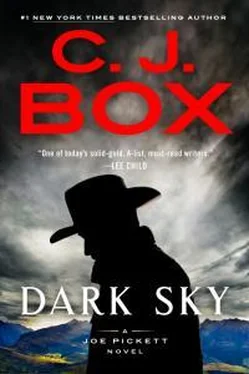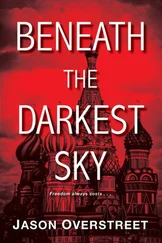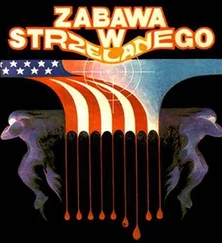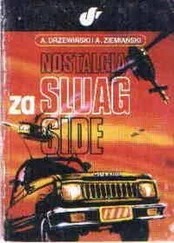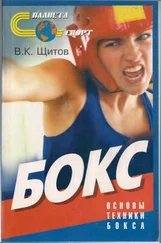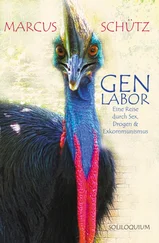“Brad ordered us to stand up, which we did. Then he said, ‘All of your electronic shit. All of it—give it to me.’ So we dug everything out of our pockets and handed it over. I’ll tell you, Joe, it was a really weird feeling. It was like being stripped naked in front of strangers.”
“So just the two of them?” Joe asked.
“Yeah. I didn’t meet Earl until we got to the camp. Anyway, they gathered up all of our phones and devices and Zsolt’s weapons. He had three pistols on him and two knives. I never knew he had that much hardware on him. I kept thinking he’d make a cool move like in the movies, you know? Like he’d be in the act of handing his gun over but he’d spin the pistol around upside down on his index finger and start blasting those guys. But he didn’t . He didn’t make a move to protect me. He just handed everything over, just like I did.”
“Rumy wasn’t in on it, was he?” Joe asked.
“No,” Price said with a sigh. “He just wasn’t as tough or loyal as I thought he was. What a disappointment he turned out to be.” Then, after a few seconds, Price said, “May he rest in peace.”
Joe asked, “Did you have any idea at the time why they were there?”
“Not at all,” Price said. “I mean, I asked them. I thought maybe we’d trespassed on their space, you know? In fact, I sort of threw you under the bus. I told them Joe Pickett had stationed us there while he went out to look for elk. I told them if they had a problem with us being there, they should take it up with you.”
“Wish they would have,” Joe said.
“Not that it mattered,” Price said. “They took my bow and arrows and all the stuff they made us hand over before they told us to start walking back to camp. They had their horses tied up about a quarter mile away and mounted up and herded us back to the camp like we were a couple of stray cows. Again, I kept thinking Zsolt would do something, like whip around and spook the horses or jump on those guys. But he just walked alongside with his head down.
“I kept thinking, ‘What do these rubes want with us?’ I thought about all kinds of Deliverance shit. ‘Squeal like a pig, Steve-2,’ I thought.”
Price said it in a faux southern accent that Joe thought offensive.
“What about Tim Joannides?” Joe asked. “You acted like you weren’t very surprised he turned on you.”
“No,” Price said, “I was surprised when I saw him standing there with Earl. But when I thought about it, well, I should have known better. I should have been more ruthless with him. I let sentiment overtake me, and that’s one thing that will kill you in Silicon Valley.”
“Meaning what?” Joe asked. He was mildly curious, but he was also cognizant of the very dire situation they were in. It continued to snow, and the temperature had dropped into the mid-twenties. It would only get colder as the day went on, and the night might be brutal. They had no food and no weapons. They had very little survival gear and few tools to make a shelter. Their heavy winter gear was back in the camp or stuffed into gear bags on Brad’s string of horses.
If he could keep Price distracted and talking—not a tough thing to do, he’d learned—he might be able to stave off the inevitable disorientation and panic. To have any chance of getting away, Joe thought, he had to keep Price engaged and moving forward. Not doing so might slow them down or get them killed.
“Do you know anything about Aloft, my holding company?” Price asked.
“Nope.”
“Everybody knows me for ConFab, which is a division of Aloft. But ConFab came later. I founded Aloft with Tim back in our dorm room at Stanford. We were fifty-fifty partners and our brilliant idea was to write software that would lift people up—hence the name—and that would help end users to create networks of friends and relatives that everybody involved could access easily on their phones . . .”
For twenty-five minutes, even as they crawled over and through downed and twisted trees that had been destroyed by a microburst and left a landscape that looked bombed, Price kept talking.
Joe understood parts of it and the rest wafted away over his head. When Price finally paused to grimace at a bloody scratch on the back of his hand from a sharp branch, Joe broke in.
“So the idea was that on a single screen on your phone you could see the exact locations of all members of your group wherever they were at the same time.”
“As long as they had their phones with them, yes,” Price said.
“It sounds intrusive,” Joe said.
Price’s face reddened. “ No ,” he said with force. “It wasn’t designed to be intrusive. It was designed to create a richer community among friends and family members. Everyone in each circle had to opt in, after all.
“You know, there was a time when we knew where everybody was—our siblings, our parents, our neighbors. That’s because we talked to each other. Actually talked. We knew when someone was going to the store or to the movies. But that was before everybody spent their lives staring at their phones. The idea behind our app was to re-create that simple idea of a community of people who cared about each other.”
“Okay,” Joe said. “I didn’t mean to anger you.”
“You have kids, right?” Price asked.
“Three daughters,” Joe said.
“Wouldn’t you like to be able to open an app on your phone and know where all of them are and that they’re safe?”
Joe winced. He thought of several scenarios concerning his adult daughters that he absolutely didn’t want to know about. He said, “No, but my wife might like that.”
“ Exactly ,” Price said.
As they wound through a crowded copse of lodgepole pines, Joe said, “So what happened to the app? Why haven’t I heard of it?”
“It still exists, but it isn’t public,” Price said cryptically. For once, he didn’t say more.
“Did you sell it?”
“That’s what one does in my industry,” Price said. “You invent a unique technology, and if you’re lucky, someone bigger wants to buy it for hundreds of millions. Remember, Tim and I were sharing a dorm room at the time. We weren’t wealthy. By then I had the majority of the shares by just enough to make the decision on behalf of the company.”
“Who bought it? The government? The military?” Joe asked.
After a long break, Price said, “Something like that.” Then he moved on quickly. Joe noted it. “Anyway,” he said, “Tim and I didn’t agree on the sale or the terms. I was able to borrow a few million from a VC and buy him out except for five percent of the parent company. He was really happy with the deal at the time and, frankly, we were sick of each other. Tim thought he’d use the money to go and invent other great products, but he didn’t and he hasn’t. He had one failure after another, unfortunately. Have you ever heard of WarmGlow?”
“No.”
“No one has,” Price said. “That’s my point. It was supposed to measure the rise in thermal temperature of a potential partner when he or she was near you. Somehow, it was supposed to reveal attraction. That was one of Tim’s great ideas. But it was a spectacular flop. It turns out the app couldn’t tell the difference between someone who heated up because they wanted to be with you and someone who was angry and wanted to punch you in the mouth.”
“Hmmm.”
“Tim was in debt when he came to me, and his investors wanted to string him up,” Price said. “This was just around the time we launched ConFab. He pulled at my heartstrings and reminded me of all those hundreds of hours we’d spent coding together in our dorm room. How we were such good friends. I let my feelings get in the way of my business sense, so I hired him back.”
Читать дальше
